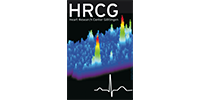Translational multiomics and precision cardiology

Our research team focuses on the role of molecular mechanisms in cardiovascular diseases, especially the impact of fibrosis on arrhythmias and heart failure. We study key epigenetic mechanisms like DNA methylation, histone modifications, and non-coding RNAs, enhancing our understanding of how cardiomyocytes, fibroblasts, immune cells, and other cell types interact to influence heart function.
We utilize advanced single-cell multi-omics techniques, including single-cell RNA sequencing (scRNA-seq), single-cell assay for transposase-accessible chromatin (scATAC-seq), and spatial RNA-seq (spatial-seq), to map the molecular landscape of cardiac diseases precisely. These methods help us identify and characterize the cellular and molecular heterogeneity within cardiac tissue, essential for developing targeted therapies. Our work also incorporates Perturb-seq technologies using CRISPR/Cas9 (dCas9) and Cas13 systems for precise gene expression manipulations—knockdown or activation. This allows us to explore transcriptional regulatory networks in heart diseases, aiming to identify new therapeutic targets. Additionally, CASAAV-mediated fast gene knockout technology enables us to validate therapeutic strategies in vivo, testing these approaches in animal models to assess their efficacy and safety.
Our goal is to elucidate the molecular mechanisms in the progression of cardiac diseases and provide new insights and methods for preventing and treating cardiovascular diseases, thereby improving patient outcomes.
Funding support
Lab members









